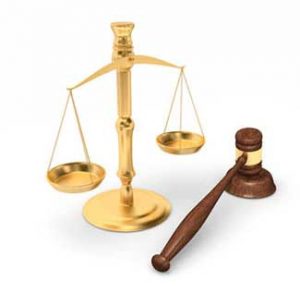Popular heartburn medication Zantac has been pulled from the shelves of pharmacies and other suppliers following a US Food and Drug Administration (FDA) warning that the pills may be contaminated with NDMA, a toxic chemical and probable carcinogen.

Wednesday, December 18, 2019 –  Zantac manufacturer Sanofi recalled the drug in September 2019, three months after online pharmacy Valisure alerted the FDA that it found “extremely high levels” of N-nitrosodimethylamine (NDMA) in Zantac and other versions of ranitidine. Valisure urged the FDA to recall all forms of ranitidine when it discovered the contamination.
Zantac manufacturer Sanofi recalled the drug in September 2019, three months after online pharmacy Valisure alerted the FDA that it found “extremely high levels” of N-nitrosodimethylamine (NDMA) in Zantac and other versions of ranitidine. Valisure urged the FDA to recall all forms of ranitidine when it discovered the contamination.
NDMA is commonly found in gasoline and rocket fuel. The World Health Organization (WHO) has determined it to be “probably carcinogenic.”
Sanofi, which is headquartered in Paris, and other ranitidine manufacturers have not indicated how long contamination may have existed, nor if they knew of the contamination prior to marketing and selling the drugs.
Several manufacturers of generic ranitidine have also taken their products off the market, and CVS, Walgreens, and Walmart have announced that they have paused ranitidine sales from their stores.
The gap between Valisure and FDA findings is significant. The FDA previously determined that humans can safely intake up to 96 nanograms (ng) per day of NDMA. Valisure found nearly 3 million ng per tablet. The FDA stated that its testing found only low levels of NDMA in ranitidine.
Questions remain regarding why the discrepancy exists. The FDA has suggested that the high levels found by Valisure were the result of testing done under higher levels of heat than tests the FDA conducted.
Valisure contends that its tests were done “in the conditions representative of those in the human body,” and that their testing “builds a compelling case for ranitidine being a likely human carcinogen.”
Since the discovery, the FDA has called upon manufacturers to check each lot of ranitidine before it goes to market, essentially entrusting corporations to self-regulate the drug.
In the meantime, Canada, France, United Kingdom, and other countries have issued nationwide recalls.
Other significant Zantac/ranitidine developments include:
Sandoz, a Novartis subsidiary, has recalled all of its prescription ranitidine products globally.
More than 500 ranitidine products manufactured by Indian drug maker Saraca Laboratories have been recalled in Italy.
Fifteen medications containing ranitidine, including Zantac, have been recalled in Ireland.
GlaxoSmithKline pulled four types of Zantac in Hong Kong before halting all global distribution.
Bangladesh has issued a temporary ban on ranitidine imports, pending its own investigation regarding the safety of the drug.
Additional recalls are pending or in progress in Australia, Belgium, Austria, Canada, Czech Republic, Croatia, Denmark, Germany, Finland, Hungary, Portugal, North Macedonia, Slovenia, Slovakia, Sweden, and Switzerland.
Though the FDA has issued a warning, it has not advised consumers to halt the use of ranitidine. According to agency news releases, it is continuing to investigate potential NDMA contamination, and recommends that consumers discuss potential alternatives with their healthcare provider.
If you used Zantac or other ranitidine products for more than three months and were later diagnosed with cancer, contact OnderLaw . Our dangerous drug attorneys are interested in helping you to determine if corporate profits were put before your well-being.
OnderLaw is a national law firm with attorneys representing clients from throughout the United States. Contact us today or click here to schedule a free consultation. Representation by OnderLaw attorneys costs you nothing out-of-pocket. We receive payment only if you are compensated.












